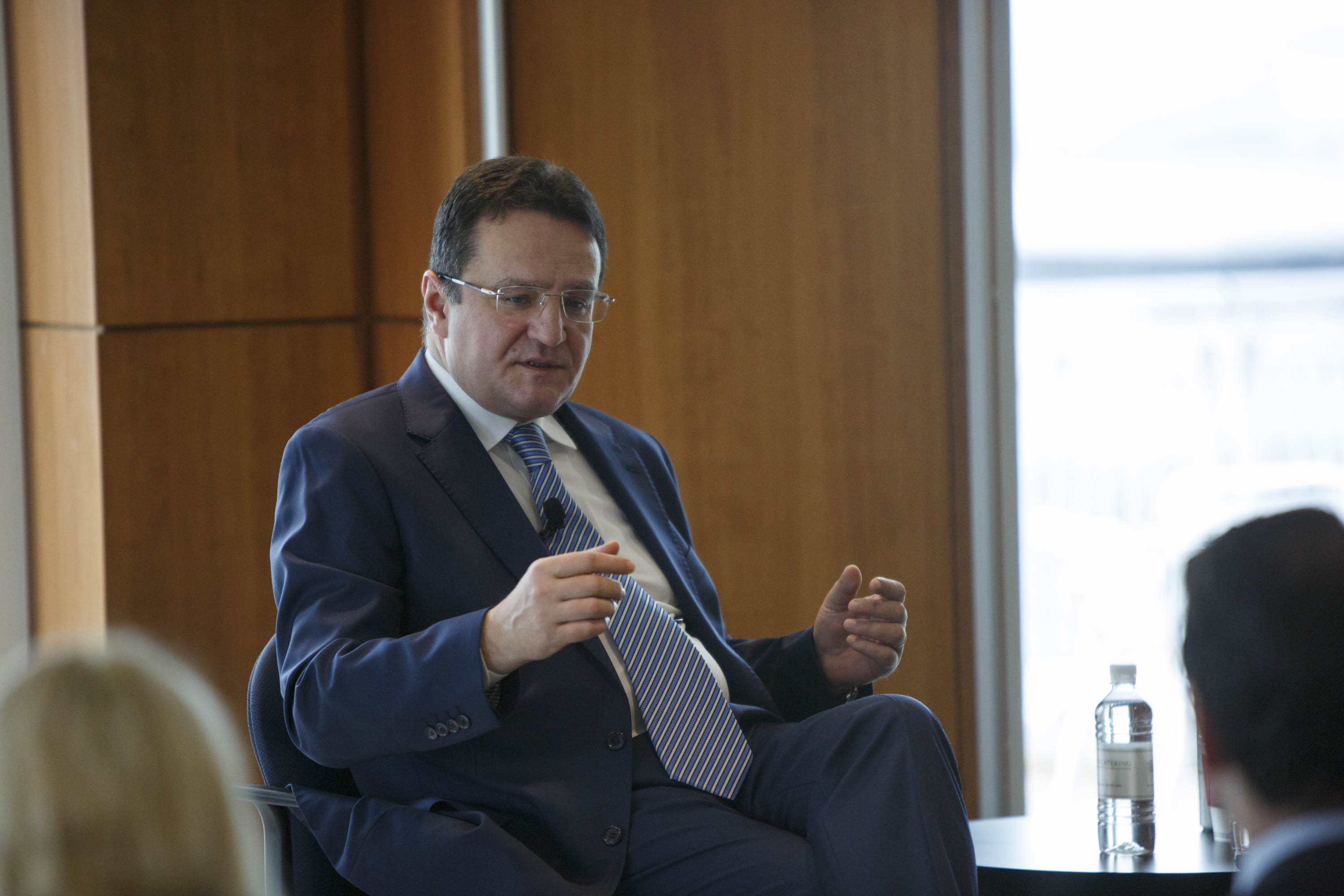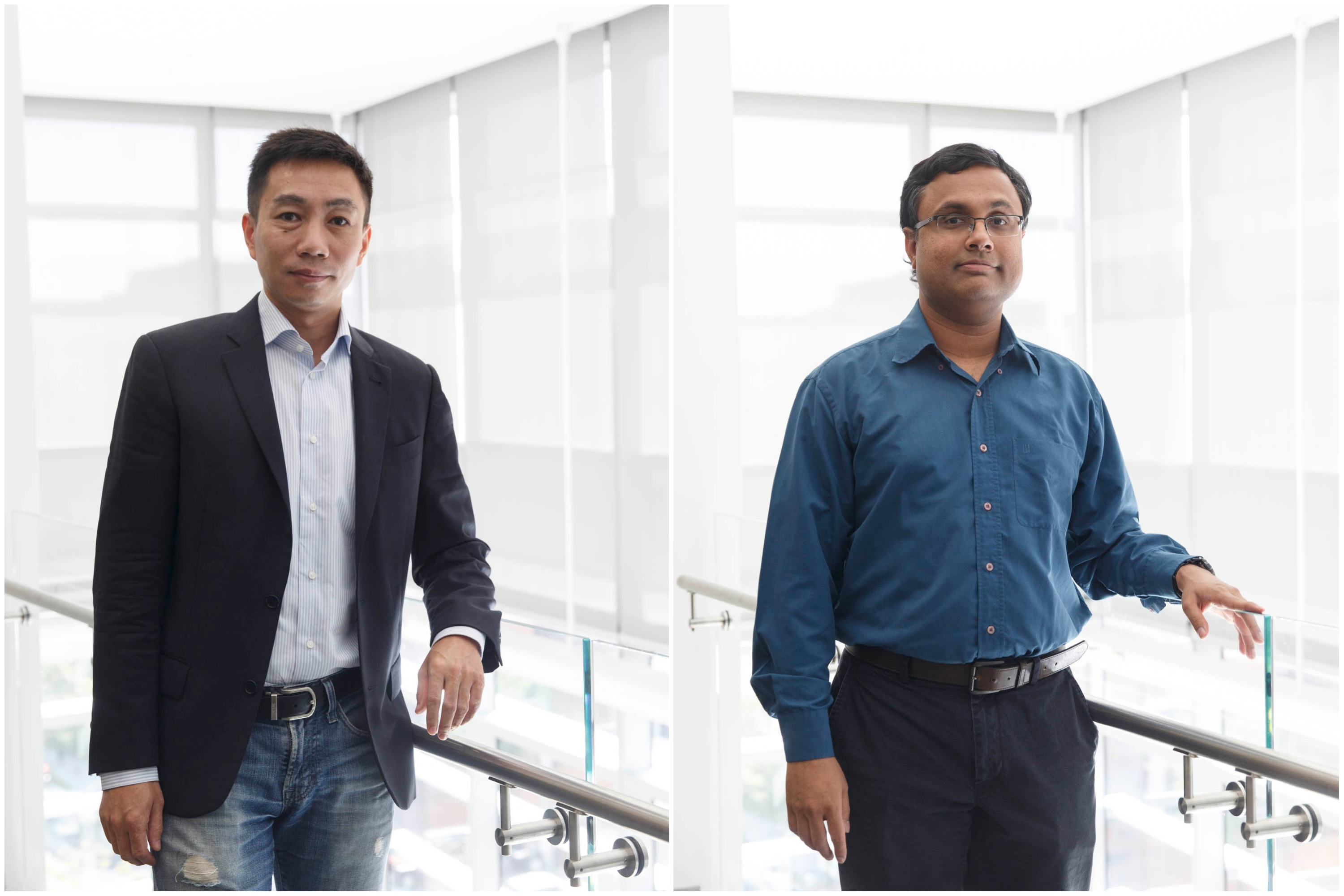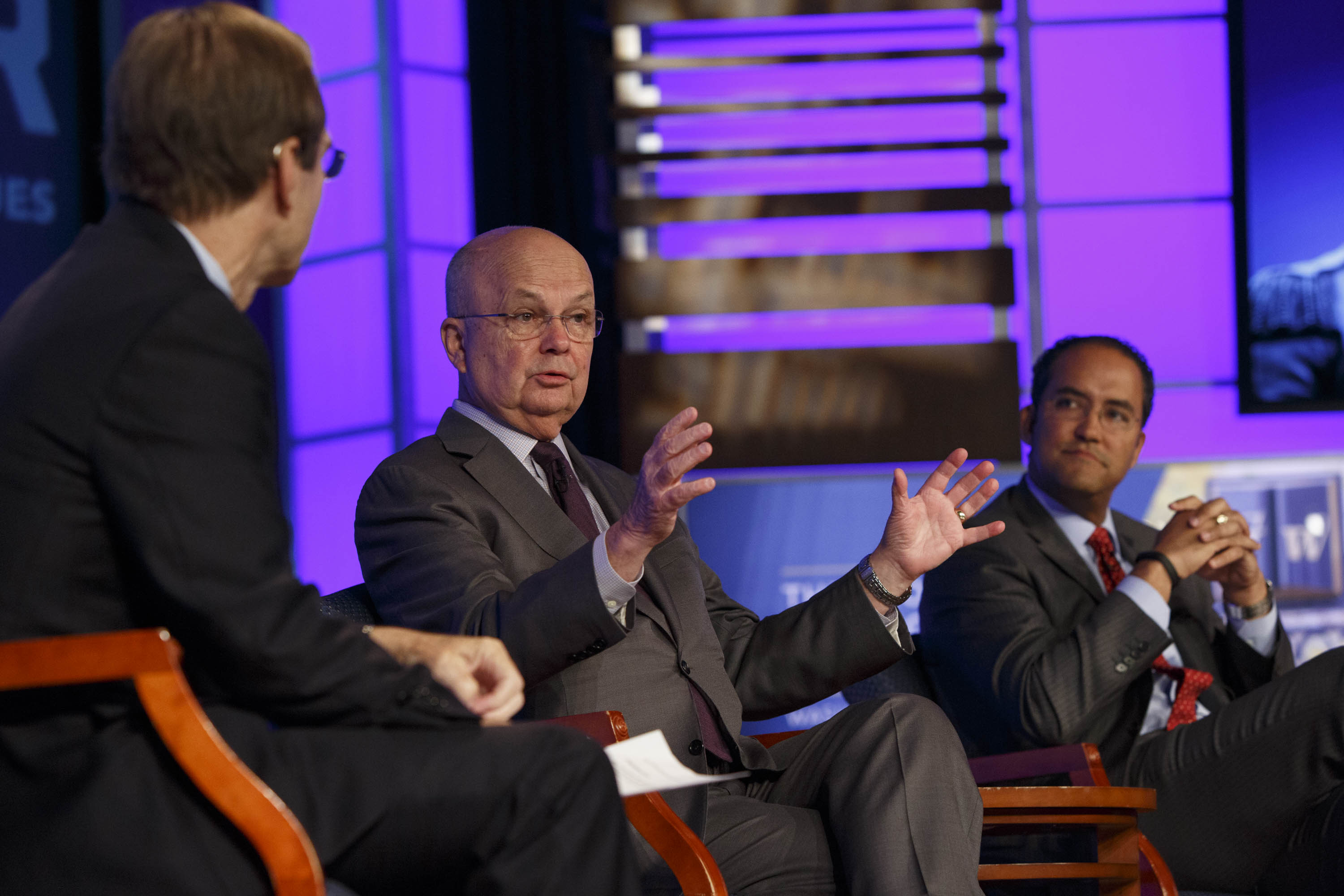By B.L. Wilson
Romania’s Ambassador to the United States George Maior, LL.M. ’92, is a key ally to the United States in the fight against the international cyber threat, especially because of his country’s geopolitical location in Eastern Europe.
“Romania’s security environment must address the covertness of challenges and threats, and cyber-related wars are an integral part of those challenges,” he said. “The objectives are to create disunity among allies and to create a lack of confidence in governments trying to cooperate inside the European Union and NATO.”
GWs Center for Cyber and Homeland Security Director Frank Ciluffo welcomed Mr. Maior to the International Cybersecurity Leaders Forum in the City View Room as a critical player in meeting the demands of an international response to cyber threats.
“I think most importantly, he served as the director of the Romanian Intelligence Service for eight years and elevated the service’s capability dramatically,” Mr. Ciluffo said. “But he did it in a way that is in accordance with democratic principles that brought in a ton of reform to the service.”
The importance of the U.S. bilateral collaborative relationship with Romania has been recognized by the U.S. intelligence community, which awarded Mr. Maior its Earl Warren Award.
In considering cyber security, Mr. Maior posed these key questions: “What is there to protect, against whom, with what and what kind of strategies?”
Our daily lives, from banking and medical records to electricity grids, airline flights and election day choices, he pointed out, are affected and have been targeted by cyber attacks. The list he said is only going to get bigger as the attacks move from criminal elements engaged in monetary and technological theft to foreign governments that use cyber as a tool in destabilizing countries and activists taking advantage of widely-available commercial innovations.
“It is only in recent times that we have witnessed the great expansion of players and use of cyber instruments in pursuit of political and ideological objectives,” Mr. Maior said. “Nation states and foreign terrorist organizations have developed expansive and increasingly sophisticated cyber arsenals.”
In the first six months of this year, computer emergency response alerts in Romania were up 35 percent, with many of the attacks aimed at private companies.
Deeply concerning to the ambassador is hybrid warfare, the pursuit of long-term objectives using a combination of conventional and unconventional covert and public activities. This was clearly illustrated in Russia’s occupation of Crimea and Ukraine, he said.
“Deployment of troops on the ground was always synchronized with a bunch of cyber attacks which included distributive denial of service attacks, defacement of Ukrainian websites, hacking of data systems and malicious trafficking in cyber espionage,” he said.
“Such activities are performed by military, paramilitary, irregular and civilian actors, and they cover a broad range of domains such as political, diplomatic, military, intelligence, financial, media and the use of information,” he said.
Propaganda and information manipulation are also key elements of hybrid warfare, which could include social media and so–called fake news “an insidious connection that triggers the cycle,” he said. “Fake news, fake analysis based on fake news in order to reach fake conclusions that can lead to wrong decisions made at the national level.”
Mr. Maior called for a multidimensional deterrence and defense strategy to combat cyber threats including education, training and training exercises coupled with political innovations, economic sanctions and even the threat of military action to deter such attacks.
“Government and state agencies cannot and should not act alone to address cyber threats or attempt to eliminate vulnerabilities. Public private partnerships are a necessity,” he said.
What Romania has going for it is the highest rate of IT graduates in Europe that the country’s law enforcement has turned to its advantage. “Hackers were really creative and doing a lot of damage in terms of our position in this field,” he explained. “Some were co-opted to work inside the new sophisticated institutions of the state like the CyberINT,” Romania’s cyber security and coordinating institution.
In 2019, Romania will take over the presidency of the European Union and cyber security will be a priority. But Mr. Maior, who was a strong proponent of cyber security in NATO, said multilateral cooperation, though essential, is not simple to achieve.
“When you exchange data and intelligence, governments tend to be more rigid in sharing,” he said. “Timely access to all sources of intelligence is key to understanding the nature of the threat and an adequate response in a positively changing environment.”




